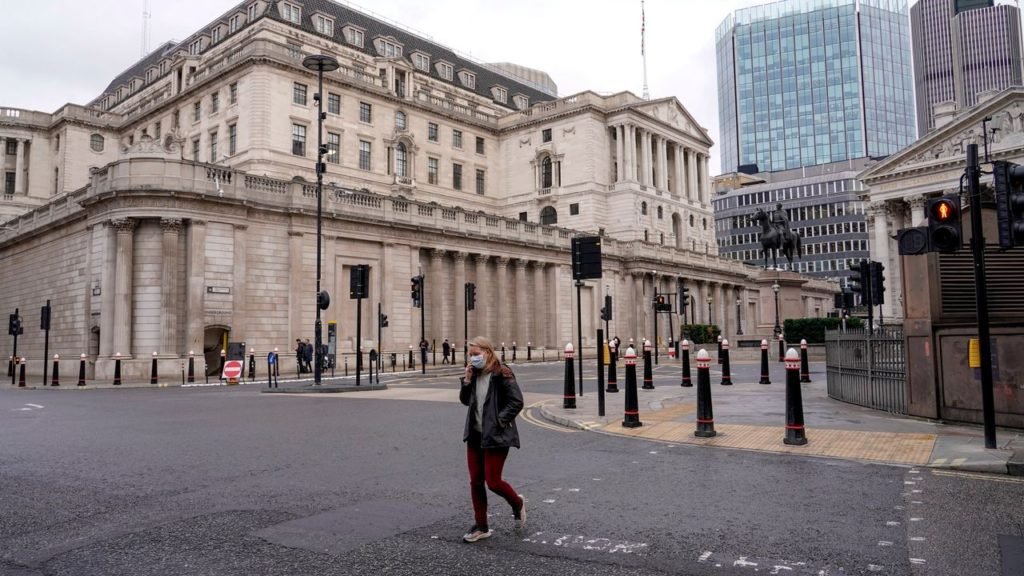As inflation will surge drastically and the economic threat from the Omicron variant would prove milder in the coming months, the Bank of England will charge forward with its plan to tighten the cycle next month, that is, hike rates three times. They became the first big rate-setter to increase the interest rates since the pandemic, leaving markets and economists stunned.
The central bank said at the time it had to act, even as the Omicron variant swept Britain because it saw warning signs in underlying inflation pressures.
Inflation, reported on Wednesday at a near 30-year high in December, will peak next quarter before starting to decline in the third quarter and won’t reach the BoE’s 2% target until the second quarter of next year, the poll found, adding pressure on the central bank to act.
Median inflation forecasts for this quarter and next jumped to 5.2% and 5.5% in the latest poll, which was released on Friday, from 4.7% and 4.6% in the one released in December.
“Inflation has surprised higher, again, and that’s only likely to increase the temptation for Bank of England policymakers to hike rates for a second consecutive meeting this February,” said James Smith at ING.
Markets are pricing in around an 85% chance of an increase in the BoE’s main interest rate to 0.50% next month.
British consumers face the added headache of an estimated 50% increase in energy costs in April alongside an increase in social security contributions.
Almost 65% of respondents in the Jan. 17-20 poll expected a 25-basis-point rate increase from 0.25% when the BoE’s Monetary Policy Committee meets on Feb. 3 while the proportion expects a rise to 0.50% by the end of March was more than 75%.
Median forecasts showed the BoE hiking its main interest rate by another 25 basis points in the third quarter – a quarter earlier than predicted last month – but it will then wait until early next year before raising it again, to 1.00%, also earlier than previously expected.
When asked how high that rate would go in the current cycle, the median response was 1.50%, still a historically low level.
Also priming for action, the Federal Reserve will raise interest rates three times this year, another Reuters poll found.
OMICRON
Britain’s economy surpassed its pre-pandemic size in November, official data showed last week, although some of that momentum was probably lost as people stayed home ahead of the holiday season to ensure they were healthy for Christmas celebrations.
Shopper numbers in central London on Christmas Eve were 30.3% lower than on the previous Friday, according to data from Springboard.
Economic growth was expected to have slowed to 0.6% this quarter after expanding by 1.0% at the end of 2021, the poll found. It will then grow 0.9% next quarter before slowing to 0.7% and 0.6% in the following two quarters.
GDP growth for 2022 was pegged at 4.5%, the median of 66 economists showed, and in 2023 it was put at 2.2%. That follows an expected 7.0% expansion last year.
Thus, the prime minister, Boris Johnson, announced the plan to stop short the strict COVID-19 restrictions as a response to the growing concerns over a series of scandals. This will encourage the increase in consumer spending, particularly services spending, resulting in any financial institutions’ good books.

